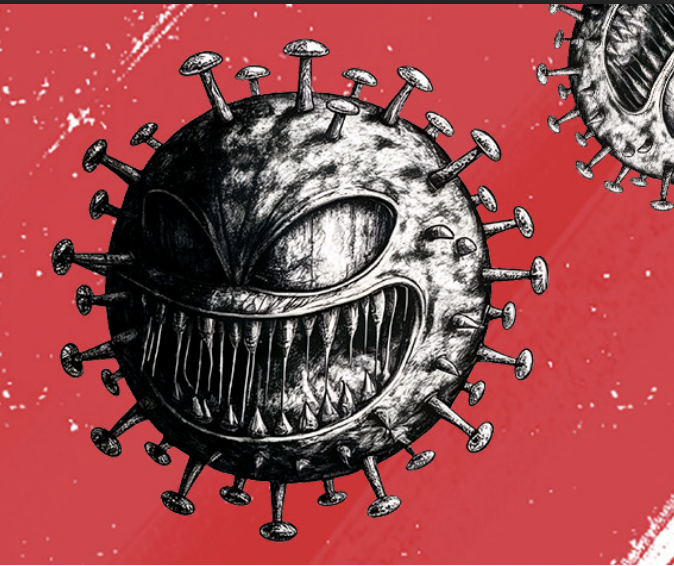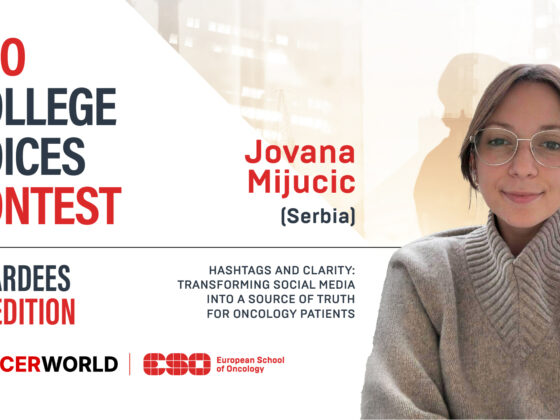Common respiratory infections, including COVID-19 and influenza, can awaken dormant breast cancer cells that have spread to the lungs, setting the stage for new metastatic tumours.
The study published in Nature , 30 July, included findings obtained in mouse models that were supported by human observational data showing increases in death and metastatic lung disease among human survivors of cancer who experienced COVID-19 infections.
“Dormant cancer cells are like the embers left in an abandoned campfire, and respiratory viruses are like a strong wind that reignites the flames,” says James DeGregori, co-lead author from the University of Colorado Anschutz Medical Campus. The study, he adds, indicates that individuals with a history of cancer may benefit from taking precautions against respiratory viruses, such as vaccination when available.
In 2024, the Journal of the Natitionall Cancer Insitutet reported changes in cancer-related mortality during the COVID-19 pandemic in the US that could not be fully accounted for by COVID-19 deaths or delayed screening and treatment. Such observations prompted DeGregori and colleagues to hypothesise that pulmonary viral infections could be increasing cancer deaths by triggering the development of metastases from dormant cancer cells. The theory was supported by earlier studies suggesting that inflammatory processes can awaken disseminated cancer cells (DCCs)—cells that have broken away from a primary tumour and spread to distant organs, which can lie dormant for extended periods.
Awakening Cancer Cells: Testing the Hypothesis in Mouse Models
The current study involved two parts: a mouse model of dormant DCCs in breast cancer and the analysis of human observational data from two databases. “We choose to focus on breast cancer because there’s epidemiological evidence that it can relapse after many years, and we also had good mouse models of dormant breast cancer,” DeGregori explains to CancerWorld.
First, the team used the MMTV-erbB2/neu/HER2 mouse model (MMTVHer2), where the HER2 oncogene is expressed in the mammary glands of mice. The result is a slow-growing primary tumour that, within 12 to 14 weeks, seeds the lungs, and then for up to one year remains largely as dormant single cells before progressing to overt metastatic disease. “This model recapitulates the persistence of dormant DCCs in lungs and bone marrow in individuals who remain in remission for years to decades,” write the authors.
The team then exposed the mice to the influenza virus or SARS-CoV-2, and went on to use immunofluorescent antibodies directed against HER2 to quantify the number of metastatic cancer cells that appeared in the mice.
Results showed that within two weeks, there was a large increase in HER2-positive cells in mice exposed to influenza (as opposed to mice not exposed) and in HER2-positive cells in mice exposed to SARS-CoV-2 (as opposed to mice not exposed.) The HER2 increase persisted for up to nine months for influenza and 28 days for SARS-CoV-2.
Next, the team performed a cytokine array that revealed dramatically increased levels of interleukin 6 (IL-6). Significantly, metastatic growth was found to be slower in mice that had been genetically engineered to be without IL-6. “Given that IL-6 is known to be involved in cancer pathogenesis and we were seeing marked increases, we thought it represented a good candidate for the culprit behind reawakening,” says DeGregori.
When areas of the lung with immune filtration (known as DAPI dense regions) were probed, they found increased immune markers for CD4+ T cells and reduced markers for CD8+ T cells. Depletion of CD4+ T cells led to regression of the tumour, but when they additionally depleted CD8+T cells, the tumour returned. “The CD4+ T cells appear to be keeping the CD8+ T cells in check and preventing them from killing cancer cells,” explains DeGregori.
The findings, adds DeGregori, suggest that the mechanism behind the metastasis is driven by IL-6–mediated inflammation and dormant cancer cell awakening and expansion, followed by immune reprogramming where CD4⁺ T cells suppress CD8⁺ T cells, thereby corrupting the immune system and preventing it from killing cancer cells. “We haven’t shown whether IL6 mediates this immune reprogramming,” says DeGregori.
COVID-19 Provides Opportunity for Real-World Data
The SARS-CoV-2 pandemic provided the opportunity to use real-world data to investigate the hypothesis that respiratory viral infections can promote metastatic disease. The team had access to two large databases – the UK Biobank and the US Flatiron Health database.
From the UK Biobank database, researchers analysed information from 4,837 people who were diagnosed with early-stage cancer before January 2015 (five years prior to the start of the pandemic). Results showed people who tested positive for COVID-19 before December 1 2020 (the day vaccination started) had a nearly twofold increase in cancer mortality compared to those who were not documented to have been infected (odds ratio, 1.85; 95% CI: 1.14–3.02).
The Flatiron Health database includes information about women diagnosed with breast cancer from 280 cancer clinics across the United States. The researchers looked at data on women diagnosed with breast cancer in January 2011 or later. Results showed that women with breast cancer who later contracted COVID-19 were about 40% more likely to develop lung metastases than those who did not catch the virus, even after adjusting for age, race, and ethnicity (hazard ratio of 1.44; 95% CI: 1.01, 2.05; P = 0.043).
“Our studies reveal how respiratory virus infections can increase cancer recurrence risk and underscore the need for public health and clinical strategies to mitigate the increased risk of metastatic progression associated with SARS-CoV-2 and other respiratory virus infections,” conclude the authors.
DeGregori stresses that their goal is not to create fear. “We don’t want every cancer survivor to be worried about stepping outside their front door. But if I was a cancer survivor, I’d make sure to be vaccinated against major respiratory viruses where there are good vaccines available,” he says.
As well as primary prevention strategies, treatments for managing severe COVID-19 have been approved by the FDA (including antagonistic antibodies against IL-6 and orally available JAK1/2 inhibitors), raising the prospect of interventions that could be used to reduce the risk of infection-induced metastatic cancer progression.
The next steps, says DeGregori, will be to explore whether interventions such as vaccines and managing COVID symptoms could minimise the risk of reawakening metastatic cells. They also hope to understand more about the mechanisms by which CD4+ T cells increase and CD8+ T cells decrease. ” Ultimately, we’d like to develop interventions that could be given to cancer survivors to prevent the reawakening,” says DeGregori.
Unanswered Questions
Although only breast cancer was modelled in the mice and metastatic sites in the lung were explored, the authors believe that the findings are likely to be applicable to other types of cancer, and also to other metastatic sites such as the brain and liver. “We also want to ask whether infections beyond viruses, such as bacterial infections, can cause awakening in the lungs or other tissues, and understand just how general this phenomenon is,” says DeGregori.











